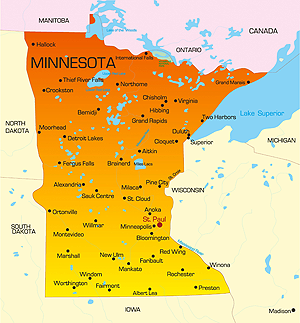A portal website bringing together vital information about natural gas and natural gas vehicles.
 | Minnesota currently offers only a weight exemption for natural gas vehicles. The state has mandated to all state agencies that they develop a sustainability plan for reducing consumption of gasoline and adopting cleaner burning fuels and alternative fueled vehicles. In 2008, the state created tax rates for alternative fuels.
|
| Legislative Session Dates: | February 25 - May 21 |
| Legislature Website: | http://www.leg.state.mn.us/ |
This state was last examined and updated in December, 2016.
